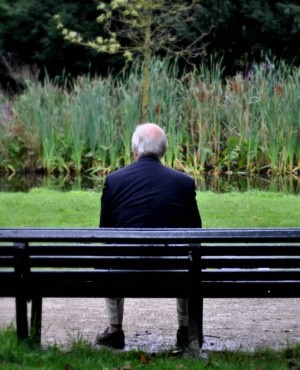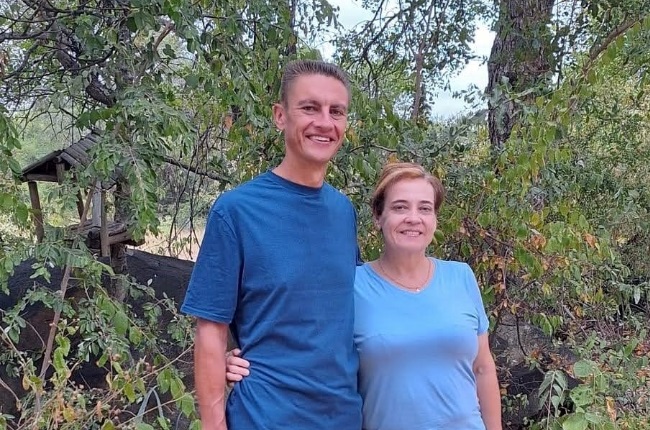
He pasted his advertisement on a bus shelter in a busy area of his neighbourhood. It was a simple scrap of paper with a moving appeal written in blue pen . . .
Han Zicheng (85), who in January this year still cycled to the local market, lived alone in a tiny flat in Tianjin, southeast of Beijing. He survived the Japanese occupation during World War 2, the brutal Chinese civil war, and Mao Zedong’s even worse Cultural Revolution.
But Han lost his battle against loneliness. And the only way out he could see was a heartrending advert that said: “Looking for someone to adopt me.”
Then followed his description of himself: “Lonely old man in his 80s. Strong-bodied. Can shop, cook and take care of himself. No chronic illness. I retired from a scientific research institute in Tianjin, with a monthly pension of 6 000 RMB [about R11 800] a month.”
Han was desperate for company. He feared death and didn’t want to die alone. His wife had died, one of his sons, Han Chang, lives in Canada and he was estranged from the other.
He apparently had only sporadic contact with Han in Canada, and very soon started calling the Beijing Love Delivery helpline for senior citizens – a service aimed at monitoring elderly people living on their own.
Elderly people are like flowers and trees and “if we are not watered, we cannot grow”, was Han’s philosophy about his fate . . .
According to Han’s son he and his sibling did take good care of their father, and his father wasn’t lonely, but just old and cantankerous.
Could his son have been right?
One of the people who was in frequent contact with Han, was 20-year-old law student Jiang Jin. According to Jian a man name Cui was also often in touch with Han and interested in adopting him.
On 13 March Jian talked to Han. The next day she missed a call from him. But nothing would prepare her for the reply she got when she called Han again early in April. His son answered the phone, and she learnt that Han had died on 17 March.
But it would take two more weeks for Han’s five neighbours to discover that he’d died . . .
In his final hours one of Han’s main wishes were fulfilled. He phoned someone who took him to hospital, and he when the end came he wasn’t on his own.
“Mandatory visits to parents”
In 2013 China made a law governing the rights of elderly people. In terms of this law adults are responsible for their parents’ spiritual needs, and may not neglect or rebuff them.
Adult children who live far away from their elderly parents must also regularly visit them.
Scores of people have dismissed the law as ludicrous, citing busy lives that prevent them from visiting their parents. Others have argued that spontaneity, not legislation should be the foundation of positive family ties.
In 2010 there were more than 178 million Chinese people who were 60 years and older. The elderly population is expected to double.
South Africa
According to a 2015 study by the World Health Organisation (WHO) there were nearly 4,2 million people aged 60 and older in South Africa that year.
A shocking statistic from the study is that more than 38% in the 60-74 age group experienced difficulty dressing, bathing, getting out of bed, using the toilet and eating on their own.
The elderly and depression
Depression among the elderly is easily mistaken as a sign of old age. Fear of being seen as “crazy” or a burden stop many elderly people from admitting to suffering from depression.
Sometimes depression can also lead to forgetfulness or be incorrectly identified as dementia.
Women, single people (both male and female) and poverty can cause depression in elderly people.
Symptoms like listlessness, lack of energy or insomnia and a change in appetite can be indicative of depression.
The incidence of suicide is higher among people over 65 than other age groups. Lack of social support and failing health are the main contributory factors.
When a spouse dies the surviving spouse usually struggles to come to terms with the loss, which can lead to suicide.
Contact SADAG at 011-783-1474/6 Mondays to Fridays (08:00-19:00) and Saturdays (08:00-17:00) for more information, consultations and references.
What you can do
- Stay in touch with regular visits or telephone calls (if living far away). Phone more often and also when there’s no particular reason for calling.
- If visiting is problematic, keep it short. Take your elderly parent to events they find enjoyable – from a school concert to a museum exhibition.
- Protect your parent(s) as much as you can against postal or telephone scams using large sums of money as bait. Establish an arrangement whereby you’ll be informed of anything they receive from an unknown source or number.
Sources: forbes.com, bbc.com, washingtonpost.com, smh.com.au, dailymail.co.uk




 Publications
Publications
 Partners
Partners
















